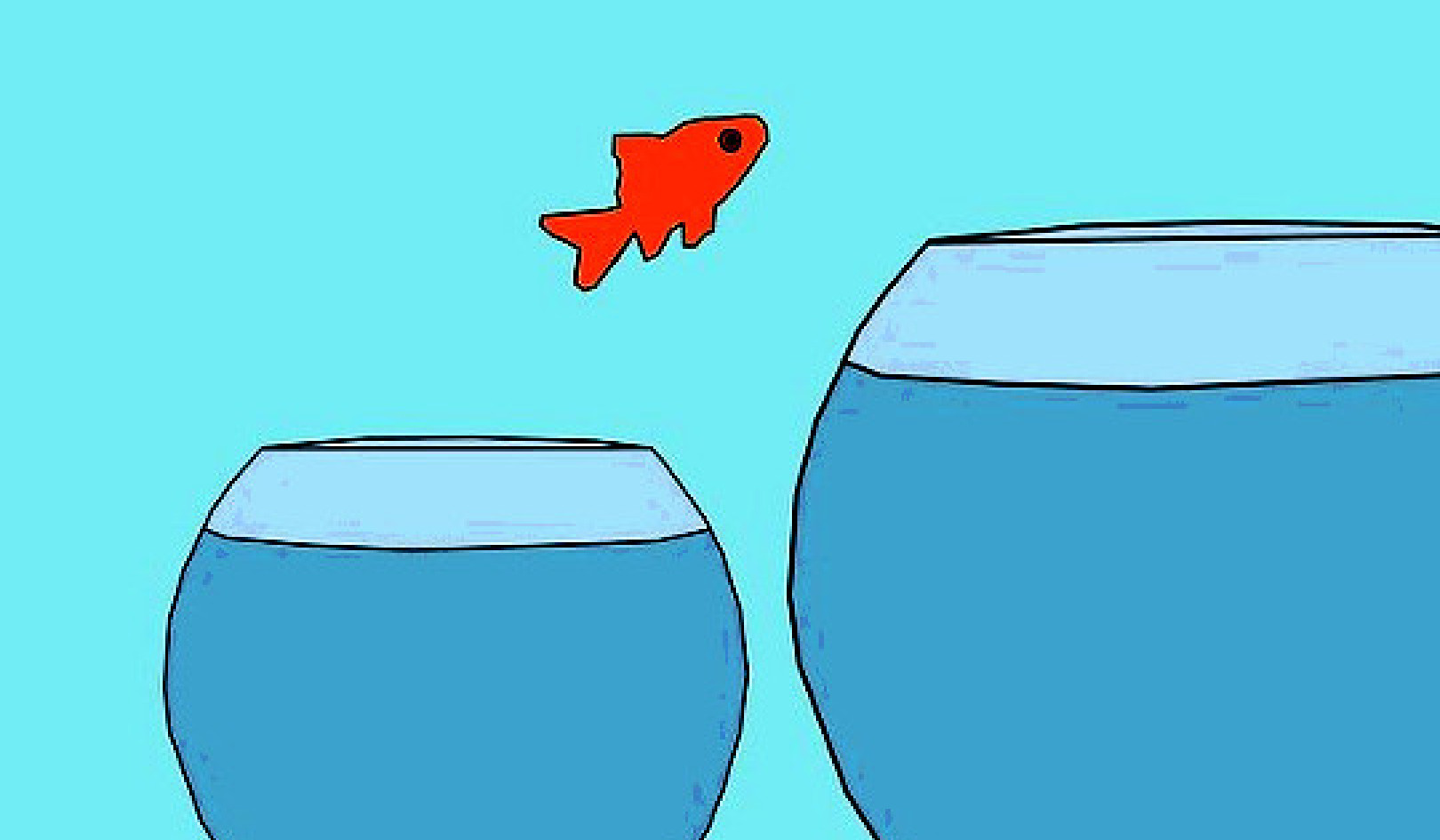
[Editor's Note: While this article was written for those with eating disorders, its information pertains to any of our unhealthy and unloving behaviors that are triggered by outside events.]
Triggers are hooks that summon emotional experiences of other times when you were frightened, harmed, and helpless. When you succumb to a trigger, you feel a sense of guilt, shame, and failure as you add another layer of fear, punishment, and helplessness to your original experience. In this way the power of triggers intensifies over time.
A continuing honest and kind appraisal of yourself is necessary to protect yourself and weather your triggering experiences. You need to know your weaknesses so you can care for yourself well. This requires giving up feelings of entitlement or of being special and superior.
You’ve developed those feelings as a result of the façade you built to hide your insecurities and your eating disorder. You come to believe the lie you present to others until a trigger destroys both your façade and your belief in the lies you’ve told yourself. Self-honesty allows you to examine your genuine situation and helps you develop the vision and stamina to be real to yourself.
Connecting the Dots: From a Triggering Event to the Desire to Act Out
Separation in the context of triggers covers a multitude of experiences and, for that reason, can take you by surprise. You may not make the connection between your desire to act out and the triggering event.
A store shuts down. A tree is cut down. A neighbor you barely knew moves away. This loss in your environment may disturb your precarious sense of security and reliance on an unchanging familiar. Divorce; a child leaving home for college, a job, or to be married; or a friend leaving town may leave you bereft with no way to adjust. Minor separations, like guests leaving your home after a social gathering, can trigger you because their leaving sparks your emotional memories of major separations.
Triggers can emerge out of your own imagination. You may awaken after a nightmare with overwhelming anxiety that drives you under the covers and later sends you groping for binge food or a full binge/purge episode.
Trigger foods are binge foods and vice versa. A binge food is your exit route from here. You see them, you taste them, and you know you can dive into them and be gone. They are like little space ships you can ride fast out of this world. Some examples are pancakes, ice cream, frozen yogurt, pasta (that was one of mine), chocolate mints, and popcorn. Seeing them can trigger a binge. Learn to recognize yours.
Developing Effective Ways of Dealing With What Causes Your Stress
The power of a trigger fades as you develop effective ways of dealing with what causes your stress. Frozen yogurt won’t look like a rescue spacecraft when you stop to ask why.
People can be triggers when they challenge you to be present and real, such as someone reviewing your qualifications, face to face, for a job or school admission, or in social situations where someone is deciding whether you qualify as a friend or a date or a second date. Old entrenched and negative beliefs about yourself rise up in triggering moments.
The best preparation for coping well with triggers is to be healthy, self-caring, and emotionally sturdy so they don’t send you into precarious states. Until that day arrives you can prepare yourself with the knowledge, skills, support, and reality checks you need. Continue your journaling, breathing, affirmation, and selfcare practices.
Attending or having access to support groups, your psychotherapist, an exercise program (preferably in a group, like a yoga class), social activities, and scheduled adult classes provide you with a nourishing and stabilizing routine. If a triggering event occurs, it does not take up the whole of your existence. You have people and activities in place to fill the void.
You may feel as if you are about to fall into that void, but you show up where people expect you. By showing up, you learn that your world did not fall apart. You put one foot in front of the other and be present, defying your fears. If you don’t show up, someone will call to find out where and how you are. You are not forgotten. Others hold you in their minds and hearts.
Identifying Your Triggers and the Tools That Can Help You Ride Through Them
 Living life without an eating disorder means living at a deeper level where you perceive more in the world, in other people, and in yourself. When you depend on your eating disorder, you want your resources readily available: binge foods, privacy to act out, adequate bathrooms and plumbing for purging, a treadmill at home and/or easy access to a gym. When you are in recovery, you want your resources readily available to maintain your recovery.
Living life without an eating disorder means living at a deeper level where you perceive more in the world, in other people, and in yourself. When you depend on your eating disorder, you want your resources readily available: binge foods, privacy to act out, adequate bathrooms and plumbing for purging, a treadmill at home and/or easy access to a gym. When you are in recovery, you want your resources readily available to maintain your recovery.
What would help you at 3:00 a.m. when you are anxious and feeling an urge to binge? What would help you when someone offers you candy at work? What would help you when someone comments on your body and you cringe with shame and want to act out?
First, make a list of situations that trigger you. Then think of what would help you ride through those experiences in a self-caring way. Remember to start with your breathing exercise. Here are several ways to give yourself recovery resources:
• Call a friend.
• Read or recite a supportive poem.
• Pull out and read affirmations you carry in your pocket.
• Excuse yourself and walk away.
• Phone exit strategies: “I’ll call you back when I can,” or “No, thank you,” then hang up. “No, thank you,” can help you out of many triggering situations.
Say no to people and activities that are bad for you. You are not pulled into negative activities because you are silent or give a weak yes that you don’t mean. You follow a reasonable and healthy diet plan where you eat nourishing food at least every four hours without going to excess, without rushing to a scale, and without throwing up. You are not afraid of snacks and can have a cookie without it leading to ten more. You spend time alone without feeling isolated and depressed.
Be The Response to Your Own 911 Call
You listen to your mother or father or brother or sister say things that used to trigger you and are okay. You might be calm or angry and frustrated, but you don’t attack or collapse. You don’t allow the painful experience to last more than a few moments.
You know how to extricate yourself from threatening scenarios, and you don’t act out your eating disorder.
When an unexpected trigger rocks you like an earthquake, you can be the response to your own 911 call and use the recovery resources you’ve put in place. It’s like having a fire extinguisher at the ready so a spark doesn’t burn down your house.
Committing to Yourself and Your Well-Being
You are now committed to your recovery. That means that when everything falls apart and there is no one or nothing that seems stable or reliable, you still have your commitment. Commitment is there for when nothing else is. Commitment is what you stand on to breathe, attend to your body sensations, and courageously make your mindful moves.
You can reach for poetry, children’s stories, exercise (swim, walk, jump rope, trampoline), runes, or your old journals. You can write out your fantasies, wishes, nightmares, day-mares, and dreams. You can call a “safe” friend, not like people from the old days who would gladly binge or drink or have sex with you while you are in this vulnerable state. As your equilibrium returns, though still shaky, you write what was going on in your life and in your fantasies in the hours and days leading up to your episode.
A Trigger Signals That You Have A Vulnerable Spot Not Yet Resolved
I don’t like to use the word “relapse.” Relapse means that you have gone back to where you were. You haven’t. You can’t. You are where you are now. Many events that used to trigger you do not trigger you anymore, because you’ve been doing your homework. You’ve become appreciative and respectful of yourself, more capable of meeting challenges.
A trigger signals that you have a vulnerable spot not yet resolved. It’s like an arrow pointing to the buried treasure on the map. The treasure was buried so deeply that you didn’t have a clue it was there. Your episode lets you know the location of a vulnerability that needs attention.
In this way your triggers become your teachers. They draw attention to where you need to grow, develop, and learn more self-care tools. As you give them mindful attention and use your developing resources, they guide you to new information about yourself and your life. They encourage you, by rattling your status quo, to explore beyond your current limits to learn and grow. As you meet your growth challenges, you grow more confident that you can meet your fears and still live well. This life in recovery is not a false promise or a fantasy. You are becoming a healthy and free adult woman capable of caring for herself, who is loving and loved.
Reprinted with permission of the publisher, Conari Press,
an imprint of Red Wheel/Weiser, LLC. www.redwheelweiser.com.
©2011 by Joanna Poppink. All rights reserved.
Article Source
Healing Your Hungry Heart: Recovering from Your Eating Disorder
by Joanna Poppink.
 Psychotherapist Joanna Poppink offers a comprehensive and effective recovery program for women with eating disorders, based on her thirty-year professional practice treating adults with anorexia, bulimia, and binge eating. She shares her personal struggles with bulimia, along with stories from a wide-range of clients she has counseled. Poppink primarily addresses women who have been suffering with eating disorders for years while they manage their careers, marriages, and families.
Psychotherapist Joanna Poppink offers a comprehensive and effective recovery program for women with eating disorders, based on her thirty-year professional practice treating adults with anorexia, bulimia, and binge eating. She shares her personal struggles with bulimia, along with stories from a wide-range of clients she has counseled. Poppink primarily addresses women who have been suffering with eating disorders for years while they manage their careers, marriages, and families.
Click here for more info and/or to order this book on Amazon.
About the Author
 Joanna Poppink, MFT, is a licensed psychotherapist specializing in treating adults with eating disorders. She studied psychology at UCLA and the Saybrook Institute and received her master’s degree from Antioch University. Joanna focuses treatment on eating disorder recovery because, today, eating disorders are a major threat to a woman's attempts to lead a fulfilling life. In her practice Joanna incorporates the latest findings of brain development and mindfulness practices in order to help women evolve beyond their dependence on eating disorders and move into a life of freedom and health. Visit her website at http://eatingdisorderrecovery.com
Joanna Poppink, MFT, is a licensed psychotherapist specializing in treating adults with eating disorders. She studied psychology at UCLA and the Saybrook Institute and received her master’s degree from Antioch University. Joanna focuses treatment on eating disorder recovery because, today, eating disorders are a major threat to a woman's attempts to lead a fulfilling life. In her practice Joanna incorporates the latest findings of brain development and mindfulness practices in order to help women evolve beyond their dependence on eating disorders and move into a life of freedom and health. Visit her website at http://eatingdisorderrecovery.com



























